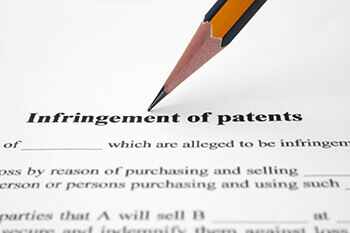Intellectual Property Law
The Power of an NDA
Non-disclosure agreements (NDAs) are some of the most common contracts in the business world. NDAs are generally used to protect the confidentiality of proprietary information.
NDAs do so by allowing a company to share its IP with others, whose input it needs, without unduly jeopardizing that information. As a legal contract between you and the other party, you agree to disclose certain information to them for a specific purpose and they agree to not disclose that information to anyone else.
It is important that you use an NDA when you have information that you need to give to someone, but you don’t want them to pass along that information to anyone else. NDAs are incredibly useful but can have significant impacts if they are broken. Therefore, it is important that you understand your NDA, and work with an attorney to draft the most beneficial NDA for your circumstances.

Mary Casey
Managing Attorney
PHONE: 508-393-9244
EMAIL: casey@harborlaw.com
Mary Casey is a business law and intellectual property attorney.
Ms. Casey brings over twenty years of senior level technical and management experience in biomedical research, medical and bio-electronic device design and fiber optic and computer technology. The combination of hands-on technical experience and legal expertise gives Ms. Casey a unique understanding of her clients' business issues and needs which makes her an effective counselor.
Find out more about issues in our related practice areas
Intellectual Property Law
Trademark Protection
Trade Secrets
Copyrights
Patents
Intellectual Property Law
Insights, opinions and decisions you should know about

Defend Trade Secrets Act: Two Years Later
It has been more than two years since President Obama signed the Defend Trade Secrets Act (DTSA) into law, which created a federal, private, civil cause of action for trade-secret misappropriation in which “[a]n owner of a trade secret that is misappropriated may...

Where Do You Sue for Patent Infringement? – Proper Venue Post ‘TC Heartland’
In May of 2017, the Supreme Court unanimously reversed the Federal Circuit’s 25-year-old precedent on venue for corporate defendants.[1] Venue is the proper or most convenient location for trial of a case, and is governed by state and federal statutes. The 10-page...

Cost-Effective Mechanisms for Enforcing Intellectual Property Rights
In my practice, I counsel small and midsize business clients, many of which are astute with regard to securing their intellectual property rights. They have federally registered their trademarks with the U.S. Patent and Trademark Office, secured a portfolio of patents...

How Do I Defend a Patent Lawsuit?
The Top 5 Ways to Defend Your Company in Patent Infringement Litigation You discover that your company has been sued for patent infringement. After reviewing the patent cited in the complaint, you determine that the technology described relates to your company’s...
Get in touch with us.
Learn more about how we can help.